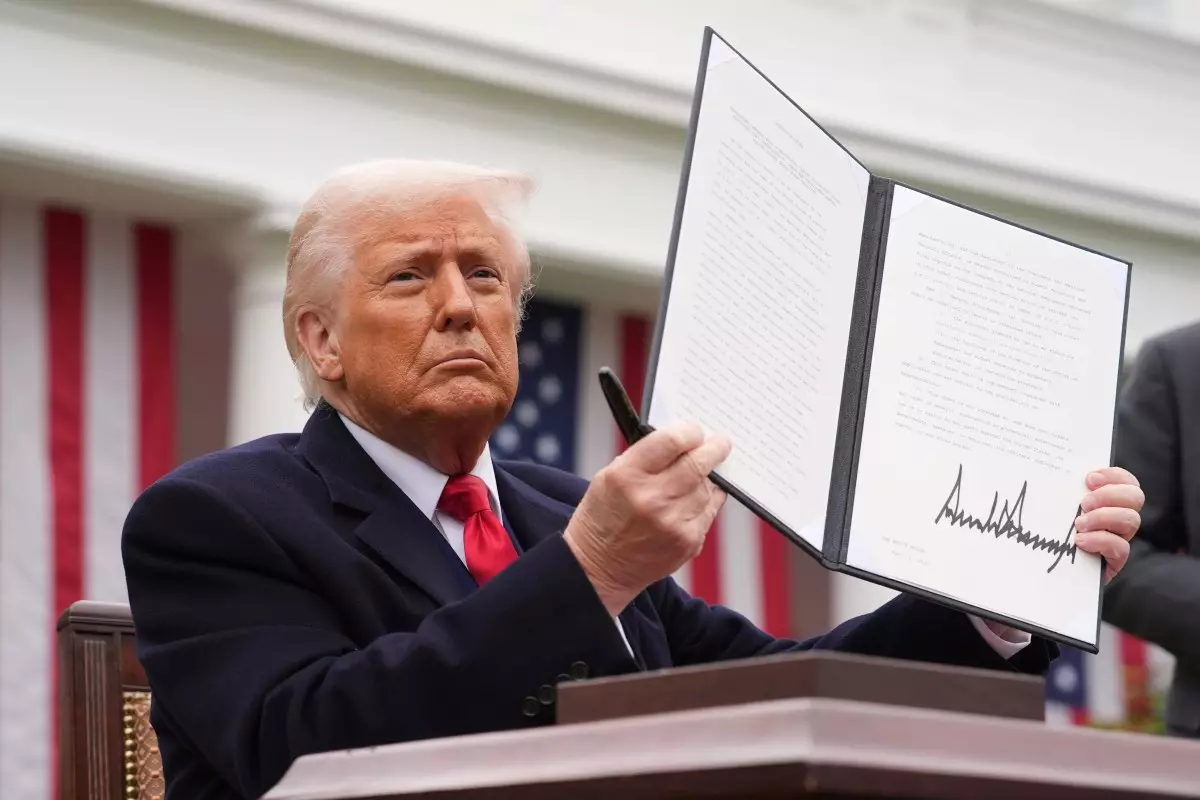The recent tariff exemptions announced during the Trump administration signal a significant shift in the relationship between the government and the technology sector. Originally, the president’s proposed tariffs aimed at curbing trade deficits and fostering domestic production. However, as the complexities of global supply chains came to the forefront, the administration contorted its stance, exempting critical tech products like smartphones and semiconductors from hefty tariffs. While maintaining a baseline 10% tariff, the decision to exempt prominent tech goods reflects an acknowledgment of the industry’s unique challenges and the vital role it plays in both global commerce and the American economy.
The Tech Industry’s Fragile Fabric
While the intention behind the tariff imposition was to reinvigorate American manufacturing, the reality is that much of the consumer electronics landscape is interwoven with global supply chains. The majority of products that are essential to American consumers, such as iPhones and laptops, are manufactured overseas, predominantly in China. Industry veterans and skeptics alike understand that the dream of an entirely American-made electronic ecosystem remains elusive. The recent exemption for these high-tech products was not merely an act of leniency; it was a necessary pivot to safeguard innovation and ensure that U.S. consumers do not face exorbitant costs or diminished access to technology.
The Potential Impact on Investors and Consumers
The reaction from market investors has been overwhelmingly positive, with tech stocks soaring in the wake of the exemption announcement. Analysts like Daniel Ives have labeled this move a “dream scenario for tech investors,” highlighting the immediate relief it provides to major entities such as Apple and Nvidia. This strategic concession not only helps nudges stock prices upward but also dovetails with consumer satisfaction. The absence of inflated prices for products like the iPhone allows consumers to maintain their purchasing power. In a climate where economic uncertainty persists, having affordable technology becomes increasingly critical for the everyday American.
Future Implications and Key Industry Concerns
Despite the temporary reprieve granted to the technology industry, underlying tensions remain palpable. The administration is poised to investigate various facets of the semiconductor sector under the guise of national security. Such inquiries could lead to unforeseen future restrictions and tariffs that would ultimately impact technological innovation and competitiveness. There’s an ever-present risk that as the administration navigates these waters, they may sacrifice long-term growth prospects for short-term political gains. The tech industry must remain vigilant, rallying for policies that not only protect their interests but also nurture a robust environment for future advancements.
Tech Titans and Political Engagement
It’s perplexing to observe how many technology leaders, including figures like Elon Musk, have actively engaged with the administration. With substantial donations made during the inauguration, these tech CEOs are clearly attempting to forge allyship with government officials. However, the benefits of such alliances appear tenuous, as evidenced by the inconsistency in beneficial policy outcomes. The recent exemptions may provide some level of comfort, but the overarching fear of unpredictability lingers. The relationship between tech giants and political powers continues to be a double-edged sword; while negotiations yield certain advantages, they often create an environment ripe for instability.
The landscape of tariffs and exemptions will remain a critical focus in an era where technological advancement and the global market are inherently intertwined. The balance between safeguarding American interests and fostering innovation demands ongoing scrutiny and strategic adaptability.

